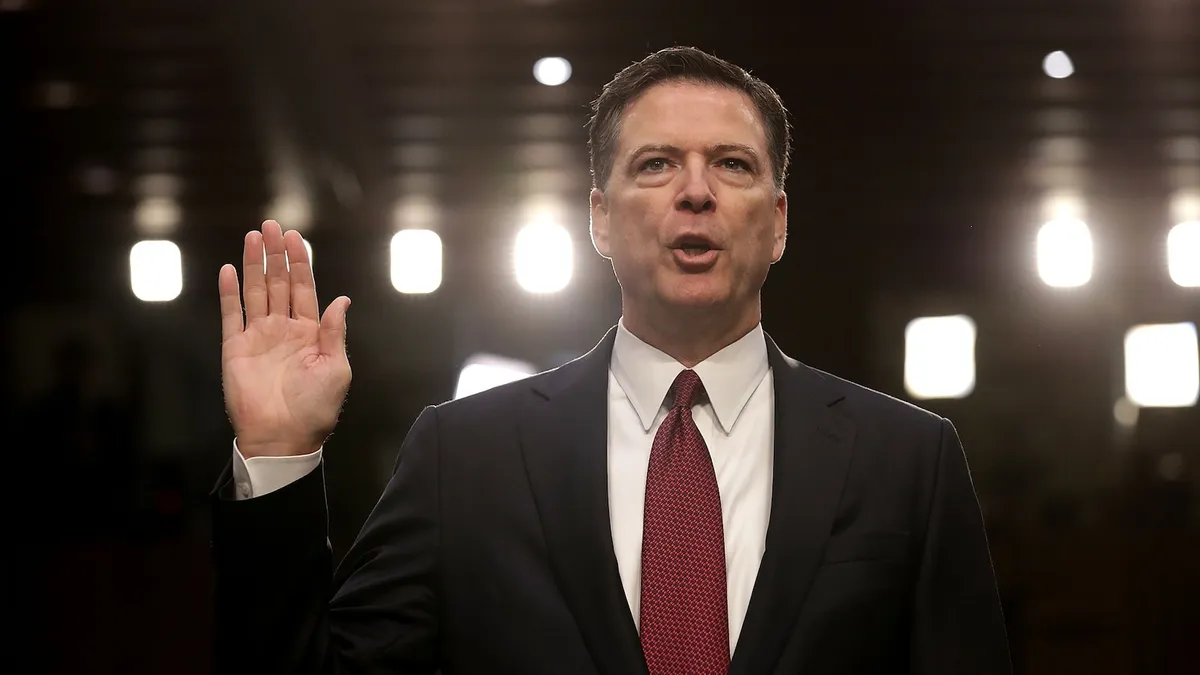
John Durham, the former special counsel who dedicated nearly four years to examining the origins of the FBI's investigation into President Donald Trump's 2016 presidential campaign and its alleged ties to Russia, has informed federal prosecutors that he found insufficient evidence to support charges of false statements or obstruction against former FBI Director James Comey. Sources familiar with the matter revealed this information to ABC News.
In a remote meeting held in August, federal prosecutors in Virginia consulted with Durham to understand the findings of his extensive investigation. His conclusions suggest that Durham, previously elevated by Trump and other Republicans who expected him to prosecute high-ranking officials involved in the investigation, may now become a pivotal figure in aiding Comey's defense.
The prosecutors also engaged with a legal team from the U.S. Attorney's Office in Washington, D.C., who had investigated Comey for several years. Despite their efforts, including calling him to testify before a grand jury in 2021, they were unable to identify any chargeable offenses against him. Following a two-month investigation, the Virginia prosecutors mirrored the conclusions of both Durham and the D.C. team: they could not substantiate claims that Comey made false statements to Congress to impede their investigation.
In a lengthy declination memo, the Virginia prosecutors explicitly referenced the findings of the two other investigations to support their recommendation that there was no probable cause to charge Comey. Despite this, Lindsey Halligan, a former insurance attorney selected by Trump to serve as U.S. Attorney for the Eastern District of Virginia, dismissed their recommendation and sought a three-count indictment against Comey. The grand jury subsequently voted to indict Comey on two counts of making false statements to Congress and obstruction, but rejected an additional charge of false statements that Halligan had sought.
The politically charged case contradicts the assessments of at least two prosecutors appointed by Trump himself. This development occurs as Trump publicly advocates for more charges against his political adversaries, claiming that the Justice Department has been weaponized against him. "What they've done is terrible," Trump stated to reporters following Comey's indictment, expressing his hope for more indictments to prevent what he perceives as injustices against the country.
However, the circumstances surrounding the prosecution—particularly the fact that at least three other prosecutorial teams declined to bring charges—could bolster the argument that Comey was unfairly targeted. Sources indicate that senior leadership at the Department of Justice expressed skepticism about the case, with no career prosecutor willing to present it to the grand jury on Halligan's behalf.
The charges pursued by Halligan center on two aspects of Comey's testimony before the Senate Judiciary Committee in 2020. Specifically, it is alleged that he lied about approving leaks to the media and claimed ignorance of an unverified intelligence report suggesting that then-presidential candidate Hillary Clinton attempted to create a scandal linking Trump's campaign to Russia. Durham's team thoroughly investigated whether Comey's claim of being unaware of the intelligence report was intentionally misleading.
According to sources, Durham concluded that he could not support charges of false statements based on Comey's alleged lack of memory, as the evidence did not definitively establish that Comey had encountered the intelligence report. During a video conference with federal prosecutors, Durham reiterated that there was insufficient basis to charge Comey with false statements, aligning his findings with those of the subsequent investigation.
The grand jury, which reviewed evidence against Comey last month, seemingly concurred with Durham’s findings, opting not to indict him on the first false statements charge. Nevertheless, they did return an indictment on two counts related to Comey's alleged approval of leaks to the media regarding the Russia investigation. This included allegations that Comey had utilized his friend and former lawyer, Daniel Richman, to relay information to reporters.
Over four years, prosecutors from the U.S. Attorney's Office in D.C. also investigated Comey for purportedly leaking information, including claims that he used Richman as a source. In 2021, Comey was called to testify before a grand jury concerning these allegations, but the case was ultimately declined due to a lack of conclusive evidence. The Virginia prosecutorial team reached a similar conclusion, advising Halligan against pursuing an indictment without clear probable cause, yet she chose to proceed regardless.
Throughout his investigation, Durham managed to bring only three criminal cases, none of which implicated senior officials in the FBI or the DOJ involved in probing Trump's 2016 campaign. Two of these cases resulted in acquittals, including one in the Eastern District of Virginia. In his comprehensive 306-page report, Durham emphasized the high threshold necessary for initiating federal prosecutions, explaining why his office may have opted not to pursue charges against certain individuals, even when their actions were deemed improper.
"If this report and the outcome of the Special Counsel's investigation leave some with the impression that injustices or misconduct have gone unaddressed, it is not because the Office concluded that no such injustices or misconduct occurred," Durham stated in his report. He clarified that not every improper action rises to the level of a criminal offense, reaffirming the exclusive mandate of criminal prosecutors to investigate and prosecute violations of U.S. criminal laws.